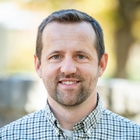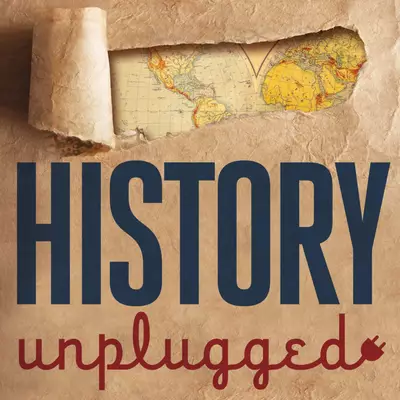Listen on Your Favorite App
Yoga Came to America via an Indian Monk at the 1893 Worlds Fair
January 10, 2023
00:00
45:54
Listen on Your Favorite App
If you are one of the 40 million people in the United States who practice yoga, or if you have ever meditated, you have a forgotten Indian monk named Swami Vivekananda to thank. Few thinkers have had so enduring an impact on both Eastern and Western life as him, the Indian monk who inspired the likes of Freud, Gandhi, and Tagore. Blending science, religion, and politics, Vivekananda introduced Westerners to yoga and the universalist school of Hinduism called Vedanta. His teachings fostered a more tolerant form of mainstream spirituality in Europe and North America and forever changed the Western relationship to meditation and spirituality.
Today’s guest is Ruth Harris, author of Guru to the World: The Life and Legacy of Vivekananda. She traces his transformation from son of a Calcutta-based attorney into saffron-robed ascetic. At the 1893 World Parliament of Religions in Chicago, he fascinated audiences with teachings from Hinduism, Western esoteric spirituality, physics, and the sciences of the mind, in the process advocating a more inclusive conception of religion and expounding the evils of colonialism. Vivekananda won many disciples, most prominently the Irish activist Margaret Noble, who disseminated his ideas in the face of much disdain for the wisdom of a “subject race.” At home, he challenged the notion that religion was antithetical to nationalist goals, arguing that Hinduism was intimately connected with Indian identity.
The iconic monk emerges as a counterargument to Orientalist critiques, which interpret East–West interactions as primarily instances of Western borrowing. As Vivekananda demonstrates, we must not underestimate Eastern agency in the global circulation of ideas.
Today’s guest is Ruth Harris, author of Guru to the World: The Life and Legacy of Vivekananda. She traces his transformation from son of a Calcutta-based attorney into saffron-robed ascetic. At the 1893 World Parliament of Religions in Chicago, he fascinated audiences with teachings from Hinduism, Western esoteric spirituality, physics, and the sciences of the mind, in the process advocating a more inclusive conception of religion and expounding the evils of colonialism. Vivekananda won many disciples, most prominently the Irish activist Margaret Noble, who disseminated his ideas in the face of much disdain for the wisdom of a “subject race.” At home, he challenged the notion that religion was antithetical to nationalist goals, arguing that Hinduism was intimately connected with Indian identity.
The iconic monk emerges as a counterargument to Orientalist critiques, which interpret East–West interactions as primarily instances of Western borrowing. As Vivekananda demonstrates, we must not underestimate Eastern agency in the global circulation of ideas.
See omnystudio.com/listener for privacy information.
More Episodes
See all episodes
Meet Your Host

Scott Rank is the host of the History Unplugged Podcast and a PhD in history who specialized in the Ottoman Empire and modern Turkey. Before going down the academic route he worked as a journalist in Istanbul. He has written 12 history books on topics ranging from lost Bronze Age civilizations to the Age of Discovery. Some of his books include The Age of Illumination: Science, Technology, and Reason in the Middle Ages and History’s 9 Most Insane Rulers.. Learn more about him by going to scottrankphd.com.
